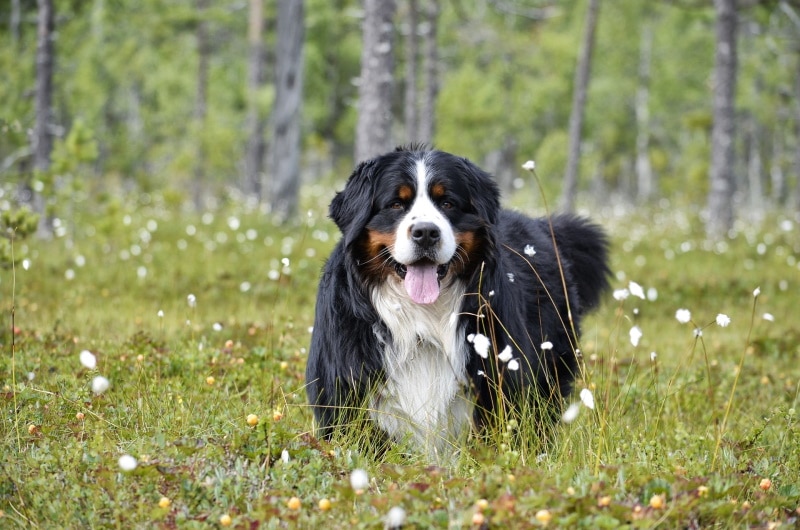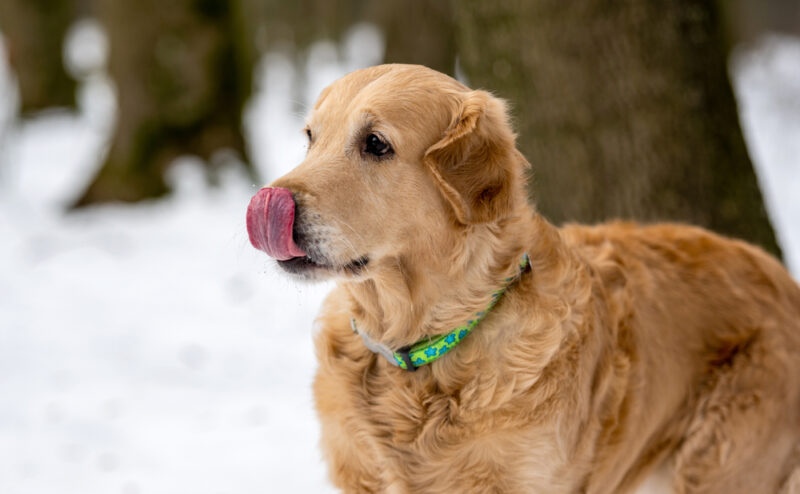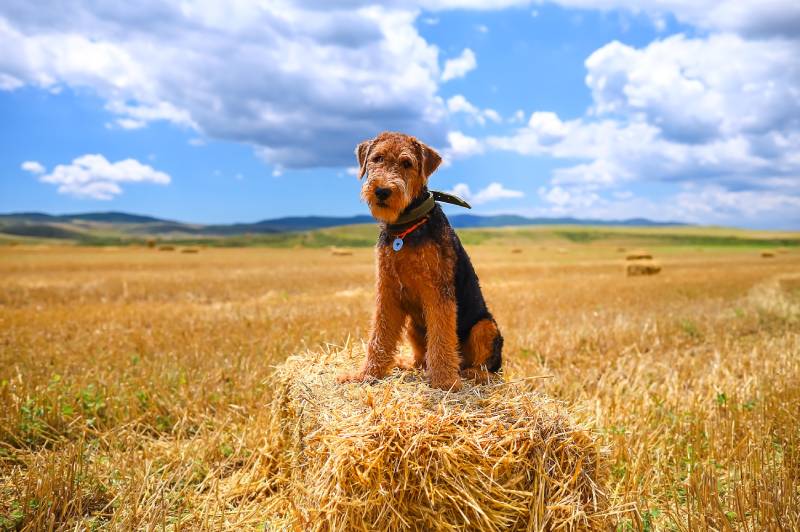How Big Does a Bernese Mountain Dog Get? (Growth & Weight Chart)

Updated on

Bernese Mountain Dogs hail from Switzerland, where they were bred to work on farms and pastures. This is a large breed that loves to please their human companions and is gentle and patient with kids. These dogs do well in cold weather conditions due to their thick coats, which are typically tri-colored.
The intelligence of a typical Bernese Mountain Dog makes them generally easy to train as puppies. As adults, Bernese Mountain dogs can weigh up to 115 pounds. Keep reading to learn about how fast they grow and what to expect from this large, loveable dog!
Facts About Bernese Mountain Dogs
Bernese Mountain Dogs are amazing animals that make good farmhands and family pets. They need plenty of room to run and play during the day, so a house with a fenced yard is a must. Here are a few other interesting facts about this mighty yet gentle dog breed:
- Bernese Mountain Dogs are slow to mature. They don’t usually reach their full growth potential until between the ages of 2 and 3 years old.
- They are versatile workers and can do everything from herding and drafting to droving and protecting.
- They can do well on the agility course and in conformation competitions.
- They have a double coat, so they tend to shed excessively, which means they aren’t great pets for owners with allergies.
- They get extremely attached to their family members and always want to be in the middle of the excitement.

Bernese Mountain Dog Size and Growth Chart
Bernese Mountain Dogs are not small animals, even as puppies. They can weigh up to a whopping 24 pounds by the age of 10 weeks! By the time they are fully grown, they can weigh an amazing 120 pounds, though 90 to 115 pounds is the most common. It’s important to note that these dogs grow slowly between the ages of 3 months and 1 year. They tend to put on a few pounds of girth between 1 and 3 years of age.
| Age | Female Weight Range | Male Weight Range |
| 8–10 weeks | 12–24 pounds | 12–24 pounds |
| 10–16 weeks | 20–40 pounds | 24–45 pounds |
| 4–8 months | 35–65 pounds | 45–85 pounds |
| 8–12 months | 60–90 pounds | 70–110 pounds |
| 1–2 years | 75–100 pounds | 80–115 pounds |
| 2–3 years | 90–110 pounds | 100–130 pounds |
Source: BMD Clubs Info
When Does a Bernese Mountain Dog Stop Growing?
A Bernese Mountain Dog does not stop growing until they are at least 2 years old. The bulk of their weight is built up and their height is achieved by about 1 year old, but they continuously build bulk and their height may be added to for a couple of years thereafter. The last two years of growth can be hard to notice because it’s slow during this time. Once a Bernese Mountain Dog turns 3 years old, they usually stop growing and will remain the same height and weight for most of the rest of their life.
Factors Affecting the Size of a Bernese Mountain Dog
Several factors can affect the overall size of a Bernese Mountain Dog while they are growing and as an adult. One is genes. If a dog has a genetic defect, it could play a role in how big they will get when they are a fully grown adult.
Other factors are diet and nutrition. These dogs need enough calories and protein to grow strong and healthy. Malnourishment can result in problems such as stunted growth and poor bone and muscle development. Puppies typically need more food than adults to meet their caloric needs. They should eat food that is specifically designed for puppies to ensure that they get all the nutrients that they need.
Yet another factor to consider is sex. Female Bernese Mountain Dogs tend to be lighter and shorter than Males. Finally, diseases such as intestinal worms can stunt a puppy’s growth and keep them from reaching their full height and weight potential.

Ideal Diet for Maintaining a Healthy Weight
The ideal diet for a Bernese Mountain Dog is comprised of high-quality protein sources, whole grains, and certain fruits and vegetables. The best way to make sure your dog gets all the nutrients that they need is to provide them with quality commercial food that contains real fish, chicken, turkey, or beef as the first ingredient.
Start with a food that is designed just for puppies, as it is usually high in fat and nutrients to help support a growing body. Once your dog is an adult, switch to a food designed specifically for large breeds, to ensure that your dog’s bones and muscles are protected as they age. These dogs should always have access to clean water, both indoors and outside.
How to Measure Your Bernese Mountain Dog
To weigh your Bernese Mountain Dog without the help of a specialty scale, start by weighing yourself on a traditional home scale. Then, pick up your dog and weigh yourself again. Subtract your personal weight from your combined weight to determine how much the dog weighs. If your dog is too heavy to pick up, you can take them to the vet at any time for a weight check-in.
To measure your dog’s height and length, you will need a fabric tape measure. Hold one end of the tape where the tail meets the body and the other end where the body meets the head. Then, record your reading. To measure height, make sure your dog is standing tall, then hold one end of the tape measure on the ground and the other where the head and body meet.
- Related Read: 10 Best Harnesses for Bernese Mountain Dogs
Conclusion
Bernese Mountain Dogs are fun-loving yet hard-working, sociable yet protective, and affectionate yet independent. They grow to be big dogs, sometimes up to 120 pounds. Hopefully, this guide gives you a clear idea of what to anticipate in terms of how quickly your Bernese Mountain Dog will grow from a puppy to adulthood and even what to expect about their personality and temperament.
Featured Image Credit: othmarsigrist, Pixabay











